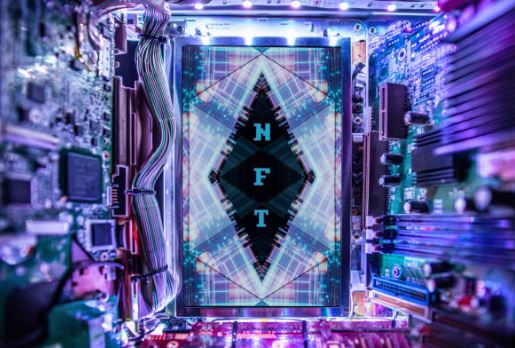The Legal Governance Of Non-Fungible Tokens- Analysing Which Field Of Law Should Govern Nfts
Until very recently, collectible one-of-a-kind goods were tangible and constrained to physical spaces. What gives any collectible item its value are the features of scarcity and uniqueness. The next phase of blockchain technology is focussed on bringing such scarcity and uniqueness to the internet, allowing for the ownership and collection of unique digital assets. This is going to be made possible through the NFT technology.
[Image Sources : Gettyimages]
The question that arises with the development of such technology is regarding the legal governance of the same. Which field of law will govern such digital assets and the NFT technology? In this paper, it is argued that Private-property law must be the field of law governing transactions involving Non-Fungible Tokens.
The current trend in internet law, has tended to elevate companies’ rights through contracts and licences while demoting owners to simple users.[1] Consequently, Personal Property law has not yet been invoked to govern online transactions. The concepts of ownership and licensing are relevant in this context.
Licensing and ownership: What’s the catch?
When a customer buys a Kindle e-book, they are only licencing the book and do not own it.[2] This is because the digital standard till now has been licencing rather than ownership of digital property.[3] This standard is the result of extremely contentious copyright rulings. The digital property, as a licence, can be subject to any terms and limitations the seller decides to put on the supposed ‘buyer’, who is actually merely a licensee. This isn’t the case with real-world property, where one is in fact the owner of a physical copy of a book they have purchased.[4] This continued to be one of the major differences of offline and online ownership. It is claimed that the NFT technology can bridge this gap. However, if NFTs are primarily controlled by Intellectual property law, then the potential that this technology holds will be lost.
Ownership of an NFT connected to a piece of intellectual property will just not confer the same rights under the law as ownership of a physical thing in which intellectual property is contained unless strong legal provisions are developed further. Technology should be regulated in accordance with how humans utilise it.[5] Despite the fact that NFTs are managed by smart contracts, they are advertised, sold, collected, exhibited, transferred, invested, and generally handled as personal property by people. Consequently, the law of property will be invoked more than the law of contract or licencing in the emerging area of non-fungible tokens. When parties transfer Non-Fungible tokens, we’re dealing with something that resembles personal property law. Buyers and sellers of NFTs evidently aim to transfer ownership of digital personal property. NFT buyers believe they are purchasing personal property, while NFT sellers claim to be selling it. Like a tangible item, the token is exclusively subject to one entity’s possession. NFTs’ importance as a basis for ownership of digital personal property in the future cannot be stressed enough. Hence, the legal fate of NFTs is dependent on their classification as property and their exchange transaction’s classification as a sale.
If NFTs had existed at the time of the internet’s inception, legal rights in personal property could have been converted just as easily as contractual or intellectual property interests have been converted to fit the needs of the digital world. However, the technological foundation for ownership of digital assets took years to develop. Meanwhile, intellectual property owners and platform operators maintained a grip on property rights, forcing them out of End User License Agreements, and other “I Agree” contracts.
NFTs are much more than a niche technology for internet collectibles. They’re a classic case of a wholly digital interest being sold as personal property. NFTs necessitate legal classification, and the most apparent legal classification is that of personal property. As a result, NFTs stand as a novel and strong-anchoring example of digital personal property, worthy of defying the mainstream online narrative that assets that are “sold” to customers are actually only licenced to them. An NFT sale is a sale of personal property or a good. The law must define issues such as consumer protection, warranties, disclaimers, and, most importantly, whether buyers of NFTs will have the legal right to go to courts. NFTs set the framework for resolving one of the internet’s oldest issues. Internet is a technology that creates endless and inexpensive copies, the consequently poses a danger to intellectual property. It took decades to create a system that restored the internet’s originality, ensuring that digital assets could no longer be duplicated with the click of a button. As more NFTs join the modest but expanding stock of digital personal property interests, the law will bend to accommodate them, allowing for strong digital property aftermarkets, financing using digital assets as collateral, and other ways for individual owners to acquire wealth. The desire to own, invest in, show, and resell one-of-a-kind objects will influence not only what we own, but also how we own online.
Author: Sanvi Bhatia is a student at NALSAR University of Law in Hyderabad, in case of any queries please contact/write back to us at support@ipandlegalfilings.com & IP & Legal Filing.
[1] Joshua Fairfield, Runaway Technology: Can Law Keep Up? 75, (Cambridge University Press, 2021).
[2]Kindle Store Terms of Use, Amazon, https://www.amazon.com/gp/help/customer/display.html?nodeId=200771440.
[3] MAI Systems Corp. v. Peak Computer, Inc., 991 F.2d 511 (9th Cir. 1993).
[4]Aaron Perzanowski & Jason Schultz, The End Of Ownership: Personal Property In The Digital Economy 57, (MIT Press, 2016).
[5] Joshua Fairfield, Runaway Technology: Can Law Keep Up? 75, (Cambridge University Press, 2021).
